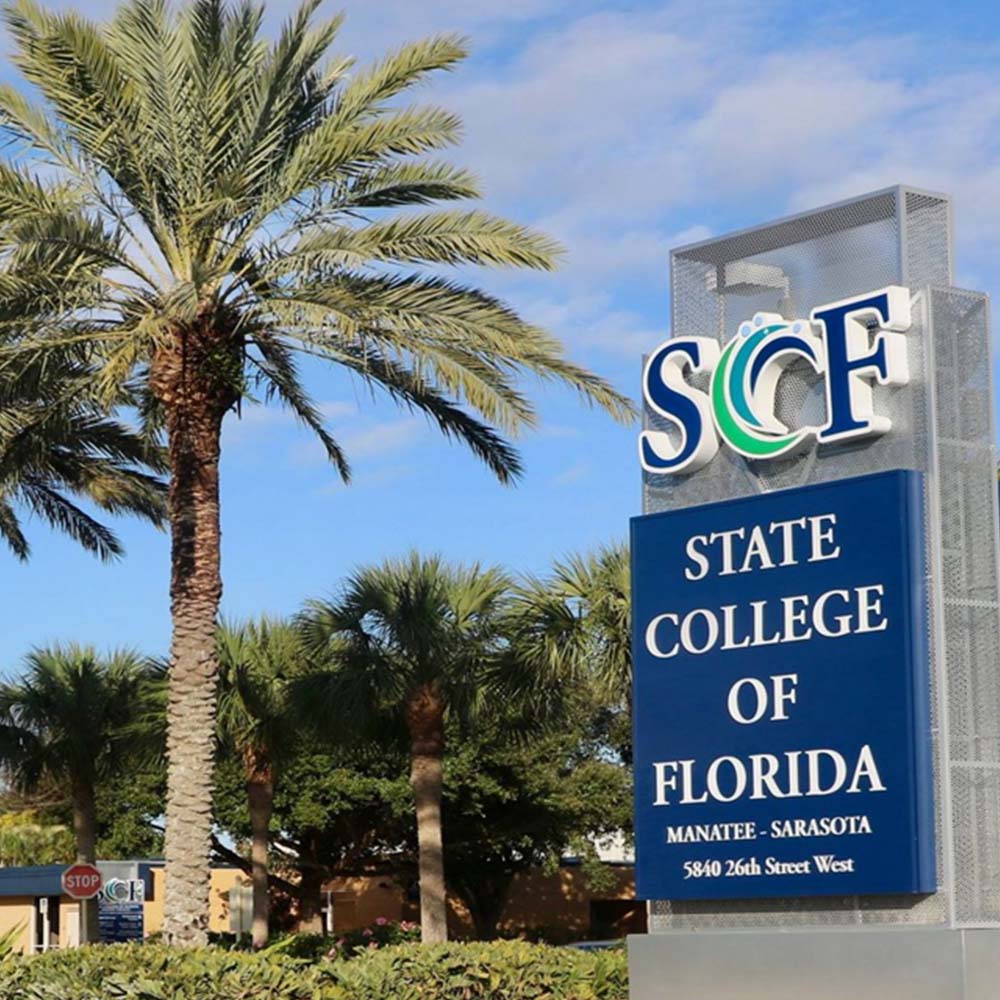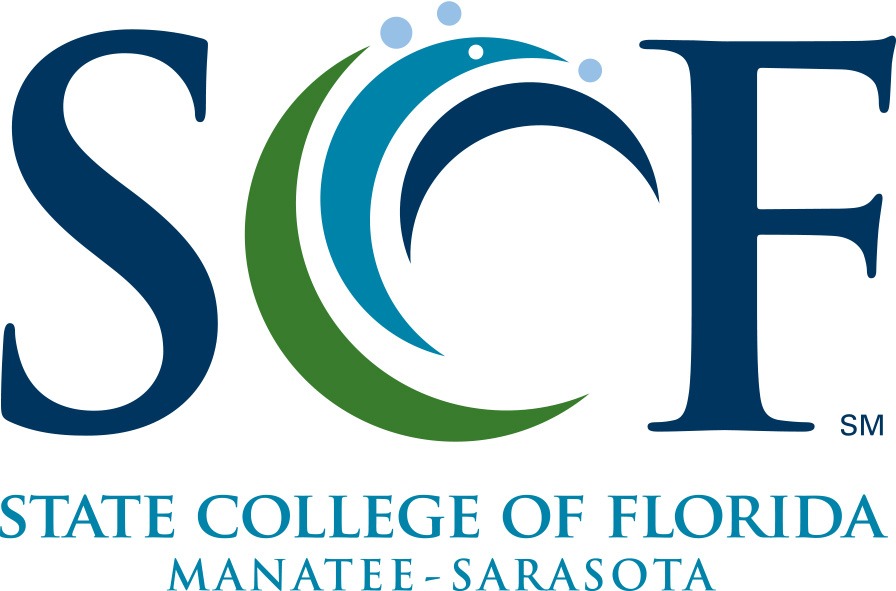FERPA

Notification Of Rights Under Family Educational Rights And Privacy Act (Ferpa) For Postsecondary Institutions
The Family Educational Rights and Privacy Act (FERPA) afford eligible students certain rights with respect to their education records. (An “eligible student” under FERPA is a student who is 18 years of age or older or who attends a postsecondary institution.) These rights include:
The right to inspect and review the student’s education records within 45 days after the day State College of Florida (SCF) receives a request for access. A student should submit to the Office of the Registrar, a written request that identifies the record(s) the student wishes to inspect. The College official, or designee, will make arrangements for access and notify the student of the time and place where the records may be inspected. If the records are not maintained by the College official to whom the request was submitted, that official shall advise the student of the correct official to whom the request should be addressed.
The right to request the amendment of the student’s education records that the student believes is inaccurate, misleading, or otherwise in violation of the student’s privacy rights under FERPA. A student who wishes to ask the College to amend a record should write the College official responsible for the record, clearly identify the part of the record the student wants changed, and specify why it should be changed. If the College decides not to amend the record as requested, the College will notify the student in writing of the decision and the student’s right to a hearing regarding the request for amendment. Additional information regarding the hearing procedures will be provided to the student when notified of the right to a hearing.
The right to provide written consent before the College discloses personally identifiable information (PII) from the student’s education records, except to the extent that FERPA authorizes disclosure without consent. The College discloses education records without a student’s prior written consent under the FERPA exception for disclosure to school officials with legitimate educational interests. A school official is a person employed by the College in an administrative, supervisory, academic, research, or support staff position (including law enforcement unit personnel and health staff); a person serving on the board of trustees; or a student serving on an official committee, such as a disciplinary or grievance committee. A school official also may include a volunteer or contractor outside of the College who performs an institutional service or function for which the school would otherwise use its own employees website scf.edu FAMILY EDUCATIONAL RIGHTS AND PRIVACY ACT (FERPA)and who is under the direct control of the school with respect to the use and maintenance of PII from education records, such as an attorney, auditor, or collection agent or a student volunteering to assist another school official in performing his or her tasks. A school official has a legitimate educational interest if the official needs to review an education record in order to fulfill his or her professional responsibilities for the College. Upon request, the College also discloses education records without consent to officials of another school in which a student seeks or intends to enroll or is already enrolled.
The right to file a complaint with the U.S. Department of Education concerning alleged failures by the College to comply with the requirements of FERPA. The name and address of the office that administers FERPA is:
Family Policy Compliance Office
U.S. Department of Education
400 Maryland Avenue, SW
Washington, DC 20202
See the list below of the disclosures that postsecondary institutions may make without consent.
FERPA permits the disclosure of PII from students’ education records, without consent of the student, if the disclosure meets certain conditions found in §99.31 of the FERPA regulations. Except for disclosures to school officials, disclosures related to some judicial orders or lawfully issued subpoenas, disclosures of directory information, and disclosures to the student, §99.32 of FERPA regulations requires the institution to record the disclosure. Eligible students have a right to inspect and review the record of disclosures. A postsecondary institution may disclose PII from the education records without obtaining prior written consent of the student –
- To other school officials of another school, school system,or institution of postsecondary education where the student seeks or intends to enroll, or where the student is already enrolled if the disclosure is for the purposes related to the student’s enrollment or transfer, subject to the requirements of §99.34. (§99.31(a)(2))
- To officials of another school where the student seeks or intends to enroll, or where the student is already enrolled, if the disclosure is for purposes related to the student’s enrollment or transfer, subject to the requirements of §99.34. (§99.31(a)(2))
- To authorized representatives of the U.S. Comptroller General, the U.S. Attorney General, the U.S. Secretary of Education, or state and local educational authorities, such as a state postsecondary authority that is responsible for supervising the College’s state-supported education programs. Disclosures under this provision may be made, subject to the requirements of §99.35, in connection with an auditor evaluation of federal- or state-supported education programs, or for the enforcement of or compliance with federal legal requirements that relate to those programs. These entities may make further disclosures of PII to outside entities that are designated by them as their authorized representatives to conduct any audit, evaluation, or enforcement or compliance activity on their behalf. (§§99.31(a)(3)and 99.35)
- In connection with financial aid for which the student has applied or which the student has received, if the information is necessary to determine eligibility for the aid, determine the amount of the aid, determine the conditions of the aid, or enforce the terms and conditions of the aid. (§99.31(a)(4))
- To organizations conducting studies for, or on behalf of, the school, in order to: (a) develop, validate, or administer predictive tests; (b) administer student aid programs; or (c) improve instruction.(§99.31(a)(6))
- To accrediting organizations to carry out their accrediting functions. ((§99.31(a)(7))
- To parents of an eligible student if the student is a dependent for IRS tax purposes. (§99.31(a)(8))
- To comply with a judicial order or lawfully issued subpoena. (§99.31(a)(9))
- To appropriate officials in connection with a health or safety emergency, subject to §99.36.(§99.31(a)(10))
- Information the school has designated as “directory information” under §99.37. (§99.31(a)(11))
- To a victim of an alleged perpetrator of a crime of violence or a non-forcible sex offense, subject to the requirements of §99.39. The disclosure may only include the final results of the disciplinary proceeding with respect to that alleged crime or offense regardless of the finding. (§99.31(a)(13))
- To the general public, the final results of a disciplinary proceeding, subject to the requirements of §99.39, if the school determines the student is an alleged perpetrator of a crime of violence or non- forcible sex offense and the student has committed a violation of the school’s rules or policies with respect to the allegation made against him or her.(§99.31(a)(14))
- To parents of a student regarding the student’s violation of any federal, state, or local law, or of any rule or policy of the school, governing the use or possession of alcohol or a controlled substance if the school determines the student committed a disciplinary violation and the student is under the age of 21. §99.31(a)(15))
Directory Information
Directory information means information contained in a student’s educational record that generally would not be considered harmful or an invasion of privacy if disclosed. Under the terms of FERPA, SCF has established the following as directory information.
- Student name
- Degree of study
- Participation in officially recognized FCSAA activities
- Weight and height of members of athletic teams
- Terms of attendance
- Degrees and awards received
Although the above directory information may be available for release, SCF does not routinely release such information to third parties. The Act states that each student has the right to inform the College that any or all the information is not to be released as requested by the student.
The College will honor the student’s request to restrict the release of directory information as stated previously. To withhold directory information, a student should notify the Office of the Registrar in writing prior to the drop/add period each term and complete the Directory Disclosure Release Authorization form available in the Office of the Registrar on the Bradenton campus or the Student Services Center on the Venice campus. The status of disclosure at the last registration period is binding and all records will be noted “confidential” until the status is changed by the student. No information will be released without prior written consent of the student.
Nondirectory Information
Nondirectory information is personally identifiable information such as grades, transcripts, GPA and academic standing. SCF does not release this information without written authorization from the student. If a student wishes to have any personally identifiable information regarding their educational record released, a Third Party Release form must be completed by the student. The forms are available in the Office of the Registrar on the Bradenton campus or the Student Services Center on the Venice campus.
Possible Federal and State Data Collection and Use
As of January 3, 2012, the U.S. Department of Education’s FERPA regulations expanded the circumstances under which student’s education records and personally identifiable information (PII) contained in such records — including Social Security Number, grades, or other private information — may be accessed without consent. First, the U.S. comptroller general, the U.S. attorney general, the U.S. secretary of education, or state and local education authorities (Federal and State Authorities) may allow access to records and PII without consent to any third party designated by a Federal or State Authority to evaluate a federal- or state-supported education program. The evaluation may relate to any program that is “principally engaged in the provision of education,” such as early childhood education and job training, as well as any program that is administered by an education agency or institution. Second, Federal and State Authorities may allow access to a student’s education records and PII without consent to researchers performing certain types of studies, in certain cases even when the College objects to or does not request such research. Federal and State Authorities must obtain certain use-restriction and data security promises from the entities that they authorize to receive a student’s PII, but the Authorities need not maintain direct control over such entities. In addition, in connection with Statewide Longitudinal Data Systems, State Authorities may collect, compile, permanently retain, and share without consent PII from a student’s education records, and they may track a student’s participation in education and other programs by linking such PII to other personal information about students that they obtain from other federal or state data sources, including workforce development, unemployment insurance, child welfare, juvenile justice, military service, and migrant student records systems.



